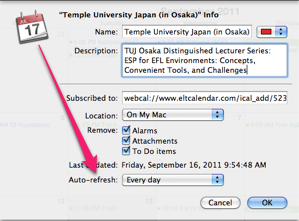Temple University Japan:
Enhancing the Authenticity of Oral Skills Instruction with Pragmatics
Date: Saturday, July 2nd, 2022 Time: 10:00 AM - 1:00 PM
Speaker: David Olsher (San Francisco State University, U.S.A.)
Description:
The pre sign-up (or course registration for those who are taking this seminar for credit) is required for anybody attending the public session on Saturday, July 2 from 10:00 to 13:00. The sign-up process must be completed through "Distinguished Lecturer Series Seminar Sign-Up Form" that is available on TUJ Grad Ed website (tuj.ac.jp/tesol/seminars). The sign-up deadline is Friday, July 1 at 12:00. The public session Zoom link will be provided to those people who completed the online sign-up process by 18:00 on Friday, July 1. Remaining sessions after the public session are scheduled for July 2, 9 and 10 (10:00-13:00 JST) and require a fee of 13,000 yen for the guest auditors. The payment information for auditors will be provided separately.
Teaching authentic oral communication skills can be greatly enhanced through the application of pragmatics research on language use as well as research on the teaching and learning of pragmatics in variety of language learning contexts. This course will introduce two key areas of pragmatics with special relevance to teaching oral communication, speech acts and conversation analysis, along with pedagogical principles and practices for integrating research findings into oral communication skills lessons. Drawing on primary research, teacher resource materials, and samples of teaching materials developed by language teachers, this course will equip participants to apply research findings and pedagogical theory to the evaluation of published textbooks, adaptation of existing materials, and design original lessons. The course will begin with samples of authentic interaction in order to introduce the fields of speech act research and conversation analysis, look at selected samples of commercial teaching materials to introduce the kinds of questions language educators may want to ask about the authenticity and usefulness of such materials. Questions of when and how the goal of discourse authenticity fits with pedagogical purposes and cultural contexts of education will round out the introduction, including issues of lingual franca English and whose social and cultural norms apply. The second phase of this course will provide more background on insights from research on speech acts analysis, hands on engagement with data samples, and an introduction to reading published research for pedagogical purposes. The third phase will provide more background on insights from research on conversation analysis, hands on engagement with data samples, and with an introduction to ways to approach published research for pedagogical purposes. The fourth phase will explore pedagogical principles and practices supported by research and introduce samples of pedagogical tasks that engage learners in reflection on L1 cultural norms, noticing pragmatic features of video and transcripts, reordering conversations, making pragmatic judgements, and role-playing scenarios. The final phase will introduce a flexible model for pragmatics-based oral skills lessons, applied via a hands-on lesson planning activity. The course will wrap up with a look at applying pragmatics to the evaluation of a textbook lesson and identifying opportunities to enhance the teaching of oral communication. A final project will ask participants to draw on several course readings and draw from them in writing an evaluation and proposal for enhancing a lesson in a textbook of their choice.
Organization: Temple University Japan
Cost: free
Venue: Online, see tuj.ac.jp/grad-ed/seminars for information.
Location: Online, Online Events, Online Event
![]() Add this to iCal
Add this to iCal
![]() (Need help?)
(Need help?)
![]() Add to Outlook
Add to Outlook
![]() (Need help?)
(Need help?)
Contact Temple University Japan
Website: www.tuj.ac.jp/tesol/seminars/
Email QR Code:
Phone (work): 03-5441-9800







